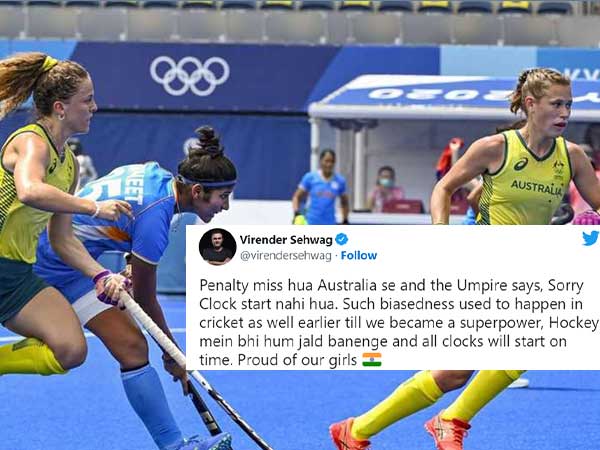
India and Australia took on each other in the Women’s hockey semifinal on Friday where Australia won 3-0 in the penalty shootout. But it was not a simple hockey match where both teams fought a neck-to-neck battle till the last second and forced a shootout and the better team won. It was a match marred with controversy where India were on the receiving end of an “honest mistake” that probably cost them a place in the final.
The Indian players did a great job to keep a team like Australia at bay despite trailing 0-1 going into the fourth quarter. Although India conceded a goal in the first quarter itself and could not score till the end of the fourth quarter, they stayed in the hunt with a goal in the 49th minute and then a brilliant save by Savita Punia in the shootout. The score line may suggest that Australia won 3-0 (in the shootout) but it was not the whole truth.
Savita Punia had done a brilliant job to deny Rosie Malone a goal in her first attempt in the penalty shoot-outs. But there came the honest mistake when the referee ordered Australia to retake the first attempt as the “clock did not start”. When Lalremsiami was asked to stop by the referee, there was a sense of shock and disbelief on the faces of the Indian and it was not at all overreaction.
The players just could not believe how it can happen at one of the biggest stages and how can an honest mistake dent their chances of qualifying for the final. This played on their minds and perhaps became a reason for the loss. While the players and coach Schopman accepted their fate saying it’s a part of the game, the Indian fans are certainly finding it hard to digest it.
Former India cricketer Virender Sehwag who is quite vocal, pointed out the biasedness is being given the name of mistake. Sehwag sounded upset in his tweet and said that such mistakes used to happen in cricket as well when India was not a superpower but they don’t happen now. He then hoped that India will become a superpower in hockey as well and then there will be no such biasedness.
